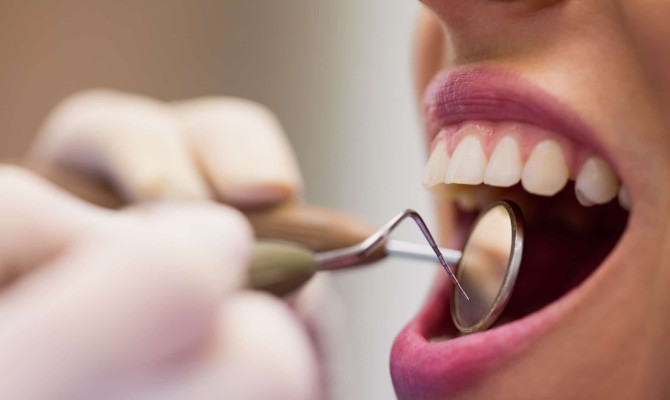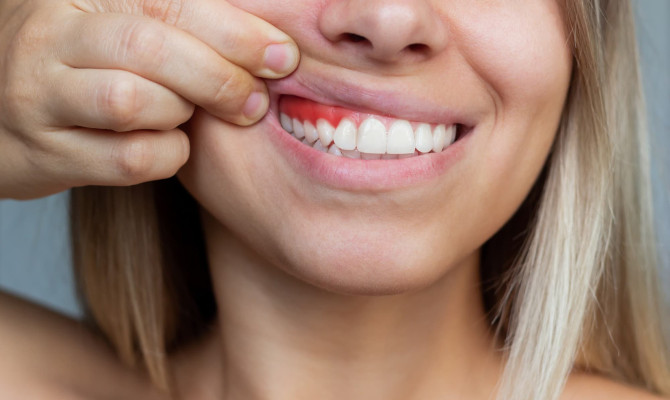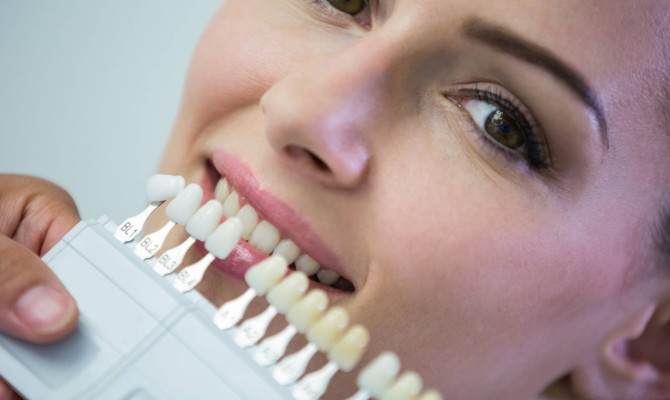Fluoride and its benefits

- Fluoride
- 16 Aug 2023
Overview
What is Fluoride?
Fluoride is a natural mineral such as fluorine and is discharged from rock into the land, water, and air. Fluoride is naturally found in lakes, rivers, and even the ocean, but not in sufficient quantities to prevent tooth decay.1Overview| Researched based study from Cdc.gov The stomach and small intestine absorb most fluoride deposited in the bones and teeth. Fluoride that is not absorbed is eliminated in urine. The use, dietary suggestions, adverse effects, overdose, hazards, and health advantages are all covered in this article.

Key facts
- The element fluorine is represented by the symbol F and has the atomic number 9.
- The earth contains fluoride as its thirteenth most frequent element.
- The bones and teeth contain 99% of the body’s fluoride concentration.2Overview| Researched based study from Nlm.nih.gov
- Fluoride can form fluorapatite or fluorohydroxyapatite in bone and teeth by displacing hydroxyl ions from hydroxyapatite.
Sources

Source of Fluoride
- Fluoride naturally occurs in minimal amounts in food and water. Drinking water is an essential source of fluoride if water is fluoridated.3Sources| Researched based study from Cdc.gov
- Most bottled water and public drinking water are fluoridated.
- Fluoride is present in foods and drinks manufactured from fluoridated water, including tea, coffee, fruit juices, and other products.
- Fluoride is present in some mouthwashes and most toothpastes. Although one shouldn’t ingest these, they somewhat increase a person’s daily fluoride intake.
Dietary supplements
- Fluoride is mainly found as sodium fluoride in a few dietary supplements.
- The majority of dietary supplements are available as multimineral supplements, multivitamin supplements with fluoride, or supplements with only trace minerals.
- Tablets, lozenges, and drops are all forms of fluoride supplementation.4Sources| Researched based study from Nlm.nih.gov
- Although some supplements contain 0.5 or 1 mg, the most prevalent fluoride content is 0.25 mg.
- Children who live in locations where the water supply is not fluoridated or has insufficient naturally occurring fluoride should consider taking fluoride supplements, according to many dentists.
Fluorides in dentistry
As their dentist advises, people can purchase fluoridated toothpaste and mouthwash to maintain optimum dental health. However, a dentist can add fluoride to a person’s teeth using
- Foam – placed over the teeth after being dispensed into a personalized tray.5Sources| Researched based study from Nidcr.nih.gov
- Varnish – applied straight to the teeth with a brush.
- Gel – applied to the teeth or dispensed in a customized tray.
Dosage
Dietary Requirement
Depending on one’s age and gender, they need different daily amounts of fluoride. The typical daily suggested dosages are listed below in milligrams.6Dosage| Researched based study from Nih.gov
For infants
- Birth to 6 months – 0.01 mg
- 7 to 12 months – 0.5 mg
For kids
- 1 to 3 years – 0.7 mg
- 4 to 8 years – 1 mg
- 9 to 13 years – 2 mg
For adolescents
- 14 to 18 years – 3 mg
For adults – above 19 years
- Men – 4 mg
- Women – 3 mg
- For pregnant women – 3 mg
- For breastfeeding mothers – 3 mg
Health benefits
Health Benefits of Fluoride
Fluoride has various uses in the body and may include
Dental health benefits
- Assists both children and adults in preventing tooth decay.7Health benefits| Researched based study from Betterhealth.vic.gov.au
- Supports remineralization of the demineralized outer enamel surface.8Health benefits| Researched based study from Nlm.nih.gov
- It helps reverse early tooth decay.
Bone health
- Fluoride promotes healthy growth of bones and strength.
- When people take fluoride orally, bone mineral density seems to increase.
- However, it’s unclear whether it lowers the chance of fractures.
Deficiency
Fluoride Deficiency
Although it is not an essential vitamin, fluoride is crucial for bone and dental health.
Fluoride shortage can result in
- Enamel with demineralized patches appears chalky white.
- Dental decay9Deficiency| Researched based study from Harvard.edu
- Fragile bones.
Side effects
Side effects of fluoride
If fluoride is taken more than recommended, it may cause the following problems
- Abnormal taste in the mouth.
- Excess salivation or drooling.
- Abdominal pain.
- Headache and weakness.
- Nausea and vomiting
- Diarrhea.
- Tremors or rhythmic motions.
- Abnormal calcium and potassium levels in the blood.
- Irritated eyes – if fluoride irritates the eyes. 10Side effects| Researched based study from Mountsinai.org
Overdose
Overdose toxicity of Fluoride
Acute fluoride poisoning
Fluoride exposure that is sudden and intense can cause:
- Abdominal pain.
- Excessive saliva.
- Nausea and vomiting.
- Slow or irregular heartbeat.
- Seizures and muscle spasms.
- Bone pain.
- Heart attack – in severe cases.
- Shallow breathing.
- Sometimes death.
Long-term overdose
The following issues may result from a long-term fluoride overdose:
Dental fluorosis
- Dental fluorosis might be moderate if children forming their teeth are exposed to high fluoride concentrations.11Overdose| Researched based study from Nlm.nih.gov
- The tooth’s enamel will have minute white specks or streaks.
- The teeth’s health is unaffected; however, the discoloration may be apparent.
Skeletal fluorosis
- Skeletal fluorosis is a bone condition brought on by too much fluoride exposure. 12Overdose| Researched based study from Nlm.nih.gov
- Over an extended period, this may cause pain and harm the bones and joints.
- The bones may turn more rigid and less flexible, increasing the fracture risk.
- Impaired joint mobility may result from the accumulation of bone tissue and bone thickness.
Kidney problems
- The primary organ involved in the excretion of fluoride is the kidney. Due to the prolonged excess fluoride intake, it is the organ that is most frequently harmed. 13Overdose| Researched based study from Nlm.nih.gov
Neurological problems
- Fluoride can enter the fetus’s brain through the blood-brain barrier before birth and has been linked to learning difficulties, mental retardation, decreased intellect, and hyperactivity in children.13Overdose| Researched based study from Nlm.nih.gov
- Fluoride also causes brain tissues to degenerate in people.
Thyroid problems
- Fluoride in excess can occasionally harm the parathyroid gland and increase parathormone secretion, causing hyperparathyroidism.14Overdose| Researched based study from Nlm.nih.gov
- This may lead to higher-than-normal calcium blood concentrations and a reduction of calcium in bone structures.
- Bones are more prone to fracture when their calcium levels are lower.
Other health problems
- Loss of muscle.
- Skin issues, including acne and others.
- Diseases affecting the bone and joints – like bone cancer, osteoarthritis, temporomandibular joint dysfunction (TMJ), etc.
- Cardiovascular issues include narrowing of arteries, calcification of artery walls, excessive blood pressure, injury to the heart muscles, cardiac insufficiency, and heart failure.
- Reproductive problems – such as reduced fertility and girls’ early puberty.
Precautions
Precautions
In the general population
- When used in amounts below the daily tolerated maximum intake level of ten milligrams of fluoride, it is probably safe.
- Long-term usage of excessive doses may weaken bones and ligaments, as well as result in weakness in the muscles and nervous system issues.
In children
- Fluorosis can be avoided in young children by breastfeeding infants or preparing formula with fluoride-free water.
- To prevent toothpaste from being ingested by kids when they clean their teeth, adults should supervise them.
- Fluoride-containing mouthwashes should not be used on children under six.
While pregnant or breastfeeding
- Fluoride is probably safe when used in toothpaste and mouthwash and when taken below the upper tolerated consumption level of 10 mg daily.
- However, consuming more significant amounts can harm the fetus and expectant mother and is linked to unfavorable pregnancy outcomes, including miscarriages, abortions, stillbirths, and congenital abnormalities 15Precautions| Researched based study from Nlm.nih.gov .
Interactions
Interactions of Fluoride with other medicine
There are no documented severe or minor interactions between fluoride and other medications. But it’s essential to note everything one uses, including prescription and over-the-counter medications and herbal remedies, and provide it to the doctor before starting a dietary supplementation.
Bottom line
The bottom line
Fluoride can be one of the most effective ways to strengthen enamel and minimize the incidence of cavities when used correctly. Even though fluoride in excessive doses can be harmful, adequately fluoridated water and over-the-counter fluoride-containing products make it easier not to achieve hazardous levels. Depending on their particular oral health requirements, a person may or may not require fluoride therapy from a dentist. More regular treatments may be advantageous to people prone to cavities. Speak with your dentist to discover more and determine whether you require expert fluoride treatments.
Any feedback on this article?
 This Articles content was accurate
This Articles content was accurate Very Informative Article
Very Informative Article I have a question or a comment
I have a question or a comment
 This article contains inaccurate content
This article contains inaccurate content This article was not helpful
This article was not helpful I have a question or a comment
I have a question or a comment
We appreciate your helpful feedback!
Checkout our social pages
References
-
Centers for Disease Control and Prevention
About Fluoride | Overview
-
National Library of Medicine
The Fluoride Debate: The Pros and Cons of Fluoridation | Overview
-
Centers for Disease Control and Prevention
Water Fluoridation Basics | Sources
-
National Library of Medicine
Fluoride supplements (tablets, drops, lozenges or chewing gums) for preventing dental caries in children | Sources
-
National Institute of Dental and Craniofacial Research
Fluoride & Dental Health | Sources
-
National Institutes of Health
Fluoride-Fact Sheet for Consumers | Dosage
-
Better Health Channel
Dental care - fluoride | Health Benefits
-
National Library of Medicine
Remineralization potential of fluoride and amorphous calcium phosphate-casein phospho peptide on enamel lesions: An in vitro comparative evaluation | Health Benefits
-
Harvard T.N CHAN
Fluoride | Deficiency
-
Mount Sinai
Fluoride overdose | Side effects
-
National Library of Medicine
Chronic Fluoride Toxicity: Dental Fluorosis | Overdose
-
National Library of Medicine
Skeletal Fluorosis: An Unusual Manifestation of Computer Cleaner Inhalant Abuse | Overdose
-
National Library of Medicine
Potential fluoride toxicity from oral medicaments: A review | Overdose
-
National Library of Medicine
Compensatory hyperparathyroidism following high fluoride ingestion - a clinico - biochemical correlation | Overdose
-
National Library of Medicine
Assessment of fluoride levels during pregnancy and its association with early adverse pregnancy outcomes | Precautions



































